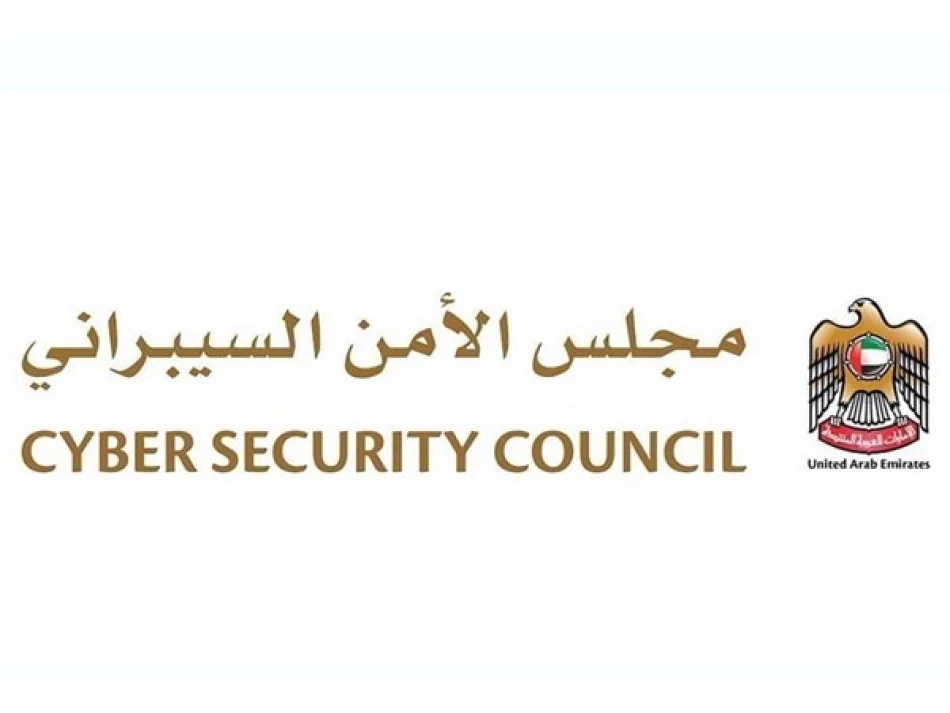
Cybersecurity Experts Emphasize Importance of Regular Device Updates for Digital Systems
UAE Sounds Cyber Alarm: Over 30,000 New Vulnerabilities Discovered in 2024 as Outdated Devices Create Digital Minefield
The UAE's Cybersecurity Council has issued an urgent warning to residents and businesses to update their digital devices immediately, revealing that over 30,000 new security vulnerabilities were discovered globally in 2024 alone. With 70% of outdated systems highly vulnerable to cyberattacks, the Gulf nation is intensifying efforts to protect its digital infrastructure as cyber threats evolve at an unprecedented pace.
Critical Devices Under Siege
The cybersecurity authority specifically highlighted five device categories facing the highest risk: smartphones, laptops, web browsers, routers, and smart home devices. These everyday technologies have become prime targets for hackers and fraudsters, particularly when connected to open networks.
The warning comes as part of the UAE's "Cyber Pulse" initiative, with this week's campaign carrying the stark message: "Neglecting updates means higher cyber risks – the numbers are alarming." This data-driven approach reflects a growing recognition that cybersecurity is no longer just an IT concern but a national security imperative.
The Economics of Digital Negligence
The 70% vulnerability rate for outdated systems represents a massive economic risk. In a nation where digital transformation drives economic diversification beyond oil, cyber incidents could undermine the UAE's position as a regional technology hub. The country's smart city initiatives, from Dubai's blockchain strategy to Abu Dhabi's AI ambitions, depend entirely on robust cybersecurity foundations.
For businesses operating in the UAE's free zones and financial centers, the implications are particularly severe. A single breach could trigger regulatory penalties, loss of international partnerships, and reputational damage that takes years to repair.
Global Context: UAE's Proactive Stance
The UAE's aggressive cybersecurity campaign mirrors similar initiatives in Singapore and Estonia, countries that have built digital economies on foundations of cyber resilience. However, the Gulf state faces unique challenges, including its role as a regional business hub attracting diverse international companies with varying security standards.
Unlike reactive approaches seen in some Western nations, the UAE is taking a preventive stance. The weekly awareness campaigns represent a systematic effort to build cyber literacy across all demographic groups, from tech-savvy millennials to older residents who may be less familiar with digital threats.
The Smart Home Vulnerability
The inclusion of smart home devices in the high-risk category signals a sophisticated understanding of modern attack vectors. As UAE households increasingly adopt Internet of Things (IoT) devices – from smart thermostats to security cameras – each connected device becomes a potential entry point for cybercriminals.
This concern is particularly relevant in the UAE, where luxury real estate developments often feature extensive smart home integration as a selling point to affluent international buyers.
Market Implications and Investment Opportunities
The cybersecurity push creates significant opportunities for technology companies operating in the UAE. Demand for automated security solutions, managed security services, and cybersecurity training programs is likely to surge as both government and private sector entities scramble to meet new security standards.
International cybersecurity firms may find the UAE an attractive market for expansion, particularly those offering solutions tailored to the unique challenges of multilingual, multicultural business environments.
Beyond Technical Fixes: Building Cyber Culture
The UAE's approach goes beyond technical recommendations, emphasizing the need to build a comprehensive "cyber culture." This cultural shift is essential for a nation that hosts millions of expatriate workers from countries with varying levels of digital literacy and cybersecurity awareness.
The focus on both individuals and institutions suggests recognition that cybersecurity is only as strong as its weakest link. In an interconnected digital ecosystem, a compromised personal device can become a gateway to corporate networks or government systems.
The campaign's practical recommendations are straightforward but critical: enable automatic updates, regularly review privacy settings, monitor devices for unusual behavior, and maintain continuous protection across all connected systems. These simple steps could prevent the majority of cyberattacks, which typically exploit known vulnerabilities rather than sophisticated zero-day exploits.
As the UAE continues its digital transformation journey, this cybersecurity initiative represents more than just technical housekeeping – it's a foundation for maintaining trust in the digital economy that underpins the nation's post-oil future.
Most Viewed News

 Layla Al Mansoori
Layla Al Mansoori






